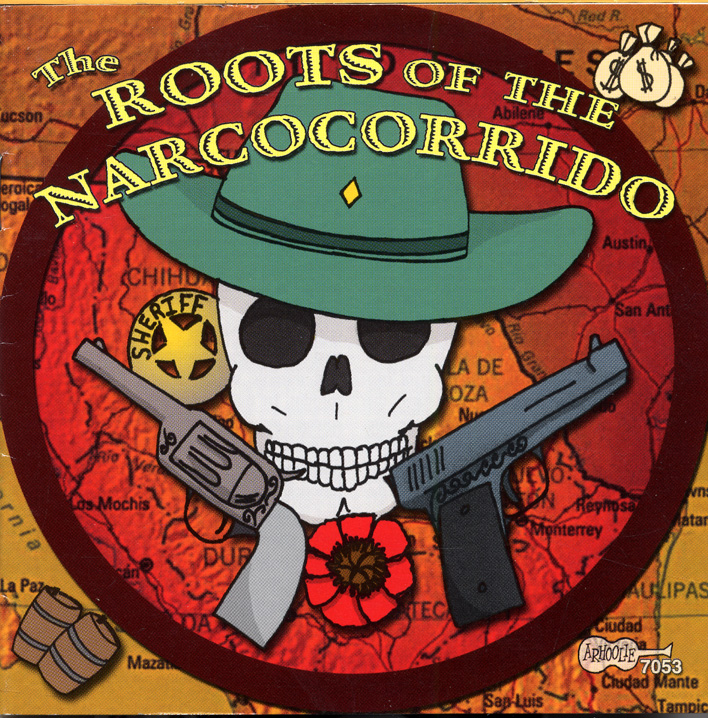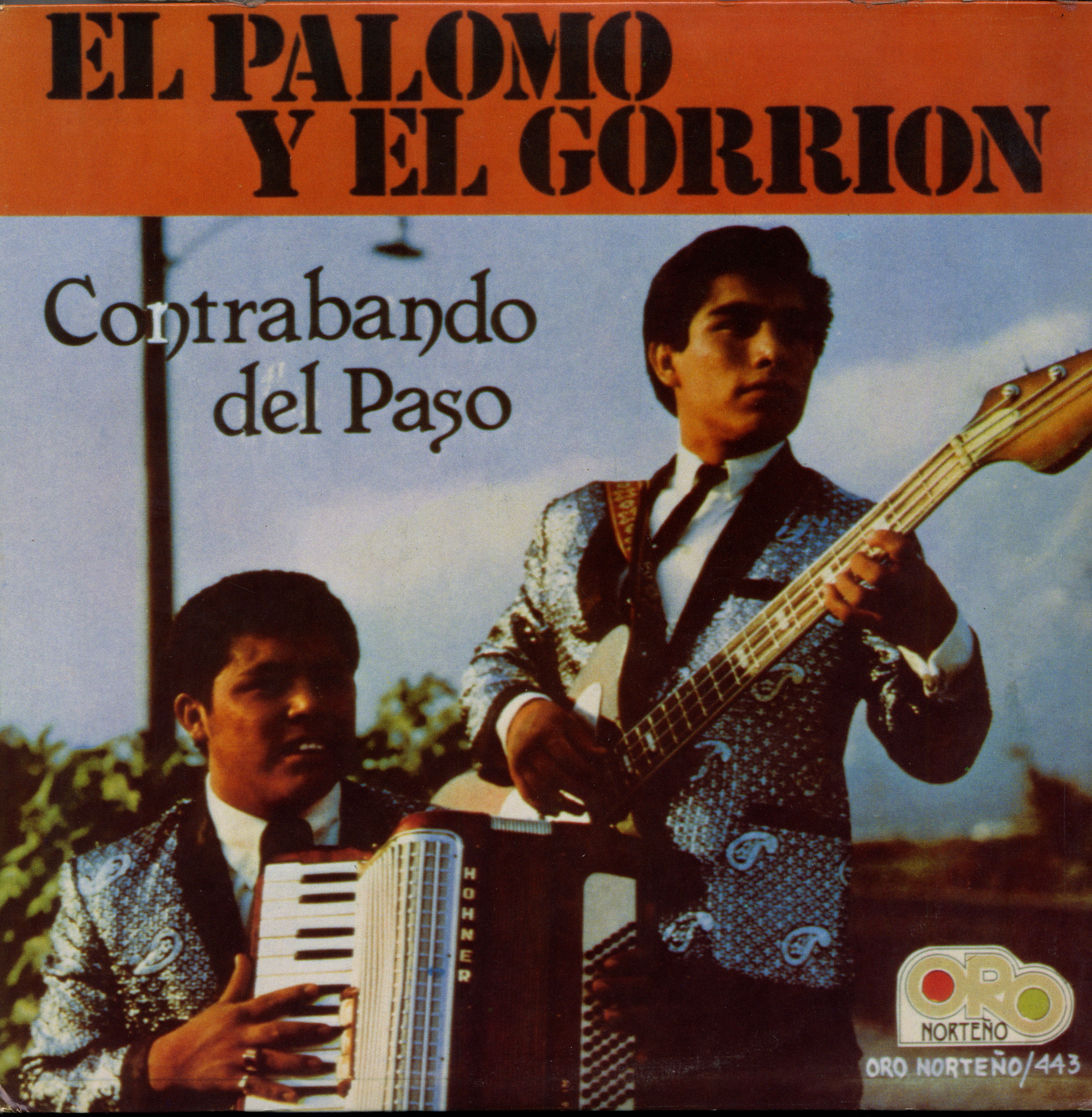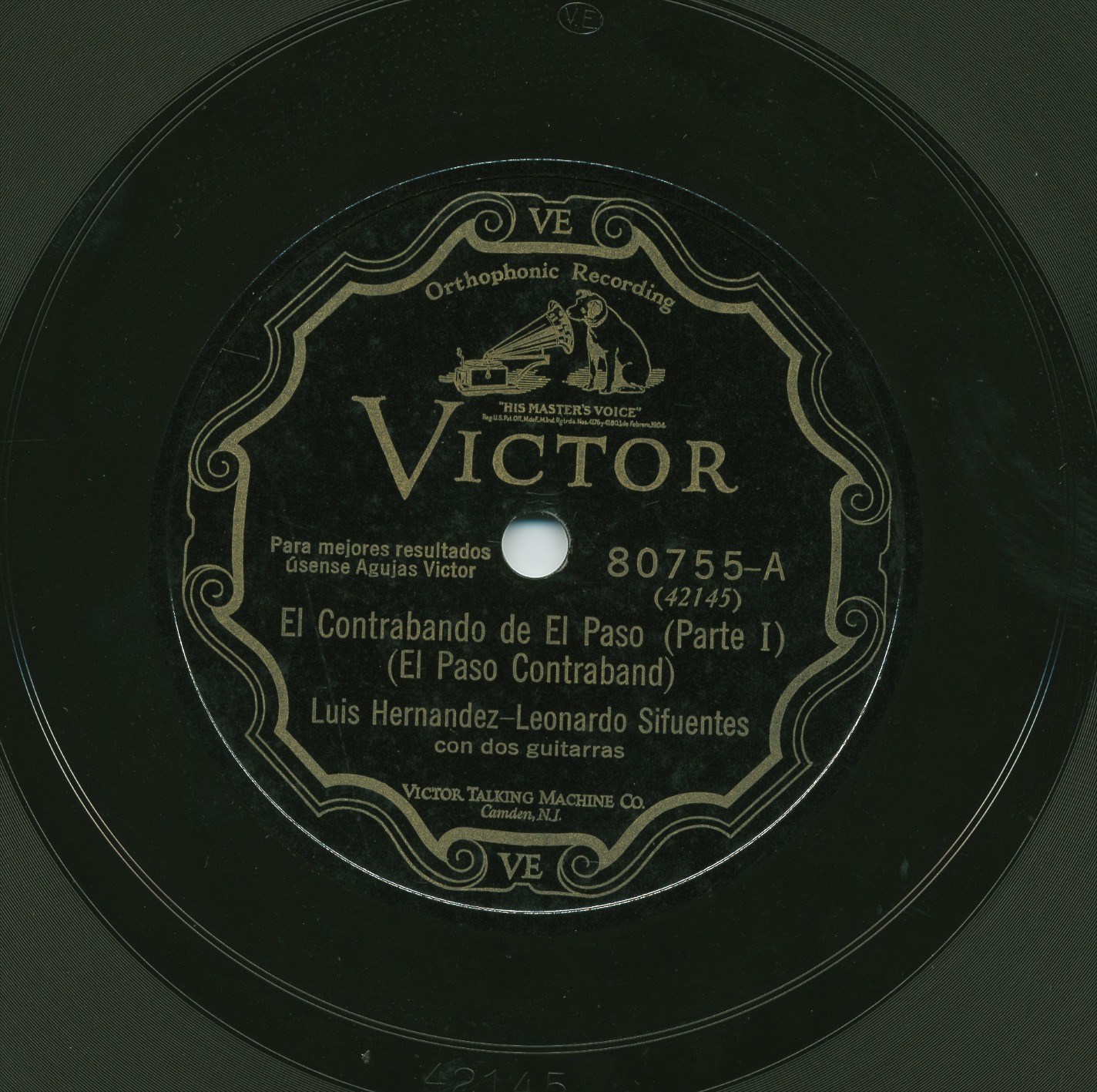the UCLA Chicano Studies Research Center,
the Arhoolie Foundation,
and the UCLA Digital Library
 The Mexican corrido or narrative ballad has been described as a musical newspaper, since the lyrics are often based on actual events featuring folk heroes and revolutionaries. But don’t ever think of the genre as yesterday’s news. Some songs become so popular that they are passed down from generation to generation, becoming musical history lessons as well.
The Mexican corrido or narrative ballad has been described as a musical newspaper, since the lyrics are often based on actual events featuring folk heroes and revolutionaries. But don’t ever think of the genre as yesterday’s news. Some songs become so popular that they are passed down from generation to generation, becoming musical history lessons as well.
Such is the case for one of the classic corridos from the Frontera Collection, “El Contrabando de El Paso.” Written in the Prohibition Era, it describes the tale of a border smuggler being transported to the prison at Leavenworth. But unlike modern narcocorridos that glorify the drug trade, this tune offers a cautionary tale in which the protagonist himself laments his lawless ways. The song was the focus of an important essay by the late Professor Guillermo Hernandez, a corrido expert who was instrumental in bringing the Frontera Collection to UCLA. Although no composer is credited, Hernandez managed to identify the likely subject and songwriter. Hernandez examined prison records showing that a prisoner named Gabriel Jara Franco had extensive correspondence with Leonardo Sifuentes, half of the musical duo that first recorded the song. His findings were published in the journal Aztlán under the title “En busca del Autor de ‘El Contrabando de El Paso.’ " 
Considering the corrido’s enduring appeal after almost a century, it may not be surprising to find a relatively recent copy of the recording for sale at Amoeba Records, the huge music retailer in West Hollywood. What is a little unexpected is that the LP, by the popular norteño duo El Palomo y El Gorrion, was among the more expensive items in the store’s used vinyl bins, priced at $11.99. The album was sealed and may have been a recent re-release, on a label called Oro Norteño, with no other company information. The only clue to the original source is found in fine print on the back cover: “License: DLV.”
 As any fan of Tex-Mex and norteño music knows, those initial stand for Discos Larga Vida, which in English means Long Life Records, apropos of our theme. Discos D.L.V. was one of the most important recording companies in the genre, founded in Monterrey, Mexico, the cradle of norteño music. The industrial city is also home to the musical duo named for a pair of warbling birds, The Pigeon and The Sparrow. The original version, on a D.L.V. 45 rpm disc, was released on this side of the border by Falcon Records, another powerhouse in the field, based in McAllen Texas. It can be found in the Frontera Collection here, along with some four dozen other versions of the song. But beware: The title is spelled two different ways. Some with the Spanish contraction “del,” as in the D.L.V. 45. And others with the spelling “de El Paso,” properly referring to the border town without the contraction. The latter spelling is used by the original interpreters, Luis Hernandez and Leonardo Sifuentes, the source who figured in the professor’s research paper. That version, on an old Victor 78, was recorded as a two-part corrido, one part on each side. The Frontera Collection has one of the most extensive archives of two-part corridos, which were popular until the advent of Long Play records that accommodated more music per platter.
As any fan of Tex-Mex and norteño music knows, those initial stand for Discos Larga Vida, which in English means Long Life Records, apropos of our theme. Discos D.L.V. was one of the most important recording companies in the genre, founded in Monterrey, Mexico, the cradle of norteño music. The industrial city is also home to the musical duo named for a pair of warbling birds, The Pigeon and The Sparrow. The original version, on a D.L.V. 45 rpm disc, was released on this side of the border by Falcon Records, another powerhouse in the field, based in McAllen Texas. It can be found in the Frontera Collection here, along with some four dozen other versions of the song. But beware: The title is spelled two different ways. Some with the Spanish contraction “del,” as in the D.L.V. 45. And others with the spelling “de El Paso,” properly referring to the border town without the contraction. The latter spelling is used by the original interpreters, Luis Hernandez and Leonardo Sifuentes, the source who figured in the professor’s research paper. That version, on an old Victor 78, was recorded as a two-part corrido, one part on each side. The Frontera Collection has one of the most extensive archives of two-part corridos, which were popular until the advent of Long Play records that accommodated more music per platter.
-Agustín Gurza
0 Comments
Stay informed on our latest news!
Add your comment